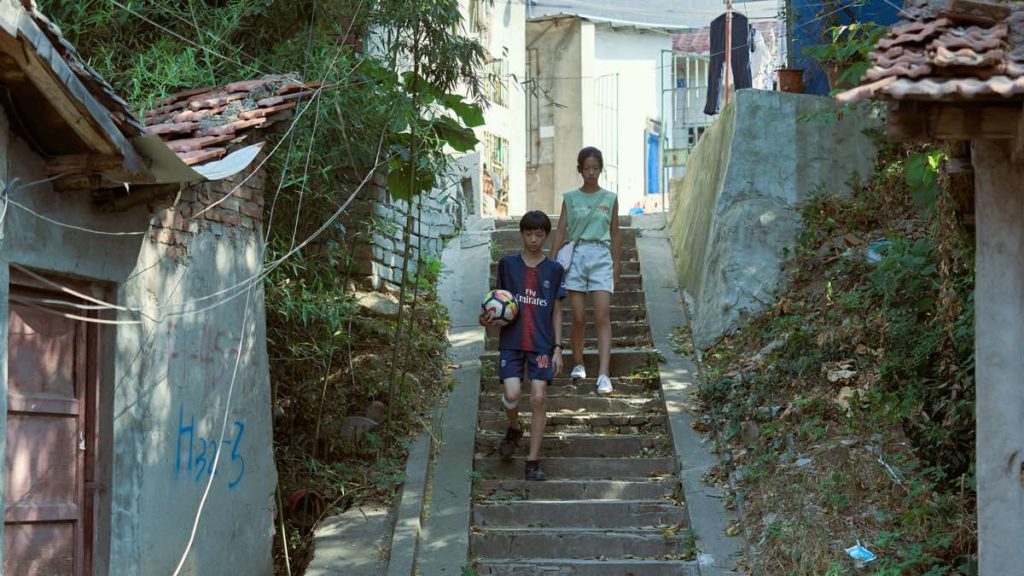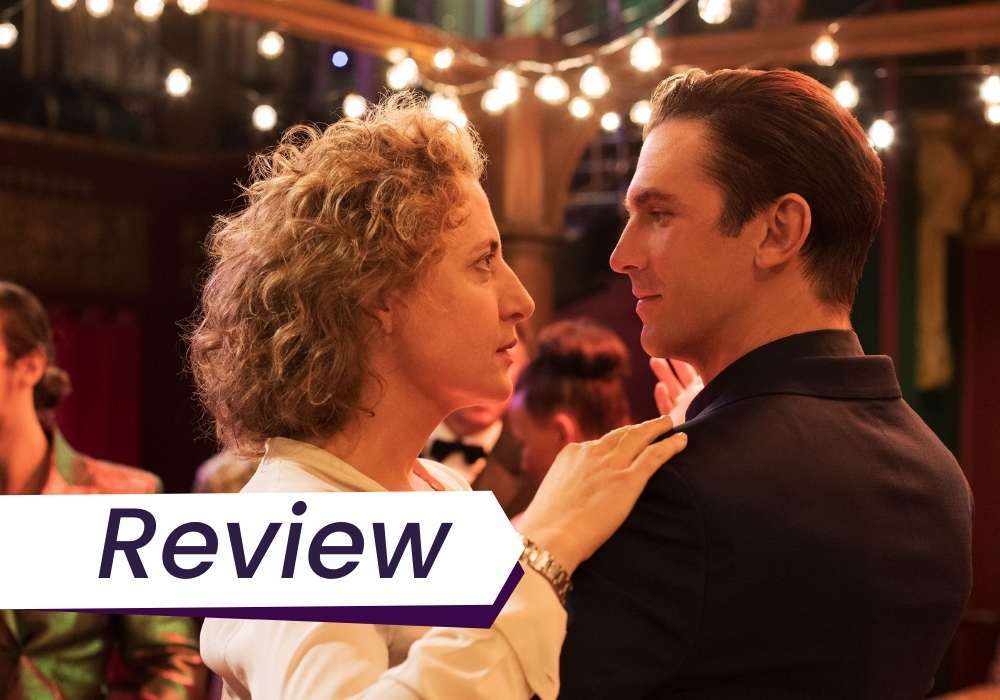Han Shuai’s feature debut, Summer Blur, follows thirteen-year-old Guo in a hot summer in Wuhan where everyone seems to be exploiting women.
Read the rest of our Berlinale coverage

Discover one film you didn’t know you needed:
Not in the zeitgeist. Not pushed by streamers.
But still easy to find — and worth sitting with.
And a guide to help you do just that.
The first time we see Guo (Huang Tian) in Han Shuai’s feature debut, Summer Blur, she’s in bed with her phone, because the closest relationship she has in the film is with her mother’s voicemail. Soon, her younger cousin, with whom she shares a bed, invades the frame with her arm, which Guo pushes away. It’s a reminder of how, even in sleep, Guo has no space of her own. Set over the course of a blazing hot summer in Wuhan, Summer Blur is the story of Guo realising how little she, as a working-class girl, is valued in the world — by her family and beyond — and how pervasive misogyny is: everyone is out to exploit her and other women. Even her home is not her own, having been sent to live with her aunt and uncle because her mother, a former model, is too busy living her life in Shanghai to take care of Guo — or even answer her phone calls.
Nobody in the film is kind to Guo unless they are expecting something in return. As lonely as she may be, what she wants most is to be left alone, at peace. On the last day of school, the boy crushing on her, Zhao (Zhang Xinyuan), removes the valve from her bike wheel, hoping she’ll have to rely on him for a ride home. Instead, another boy, Xiaoman (Luo Feiyang) swoops in with his scooter, but Guo only reluctantly accepts his rescue. Sitting on the back of his bike, and framed in a two-shot, there’s nothing romantic about the image, shot from afar and below, with Guo avoiding touching her driver at all costs. He offers her a thoughtful gift of a toy plane, but when she realises he hopes to be a kind of “sugar daddy” toward her, she deliberately destroys it, and his attempt to rescue the plane from the middle of a river will cost him his life.

Guo thus spends the summer feeling guilty that daring to have a reasonable emotional response to Xiaoman’s predatory behaviour may have had unexpected consequences. She’s too young to understand that she has no control over his signs of affection or acts of purported chivalry. From early on, Zhao discovers her connection to Xioman’s death, and offers both companionship and something a bit creepier. Does Zhao genuinely like her or is he hoping for something more, something she may not be interested in giving him? Guo herself isn’t sure how she feels about him, inviting him into her home one day, helping him with his business the next day, and later, feeling threatened by his slow and possibly predatory approach from across the room in an abandoned building.
Hewing close to Guo’s perspective throughout, Han follows Guo observing the world around her: the power dynamics between men and women, and the way men bestow their gaze and women cater to it. She presents as a tomboy at first, pairing large t-shirts with shorts, but can’t look away from the girls her age putting on makeup, or the lingerie that Zhao helps his father sell. At the same time, she defines herself against her spoiled, self-absorbed younger cousin who prefers tutus and ballet. When an ice cream merchant offers Guo and her cousin free dessert in exchange for her cousin, dressed in her ballet clothing, doing the splits, Guo looks on with skepticism bordering on disgust; she feels her cousin is being exploited. Despite getting only harsh words and sometimes hard slaps from her aunt, Guo still sticks up for her aunt when she sees her being condescended to and exploited by men.

Feeling powerless, Guo is torn between using her womanly appearance to get ahead, in the way her mother did as a model, and hating herself for allowing herself to be exploited. She looks at all men with skepticism, registering even the smallest acts of purported kindness as possible exploitation. Han gives credence to Guo’s point of view by making even Zhao, a seemingly harmless fellow thirteen-year-old, a potential threat. Han often shoots him stalking across the frame or an expanse of space toward Guo as a predator, and we first meet him in an act of predatory behaviour, albeit mild. It’s one of the only films I’ve ever seen that charts a young girl’s realisation of just how misogynistic the world is, as we watch her register every micro-aggression, and navigate how she can exist within it.
Young actress Huang Tian is a great discovery, portraying the often silent Guo as someone always thinking, always sizing up the situation. She also communicates Guo’s trauma — abandoned by her mother, unnurtured by her aunt and uncle, bullied by her cousin, and finally, her feelings of guilt over Xioman’s death. She’s in constant conflict, trying to figure out how to gain independence without losing herself. We watch on tenterhooks, hoping she’ll find a way forward.
You could be missing out on opportunities to watch great films like Han Shuai’s Summer Blur at virtual cinemas, VOD, and festivals.
Subscribe to the Seventh Row newsletter to stay in the know.
Subscribers to our newsletter get an email every Friday which details great new streaming options in Canada, the US, and the UK.
Click here to subscribe to the Seventh Row newsletter.




